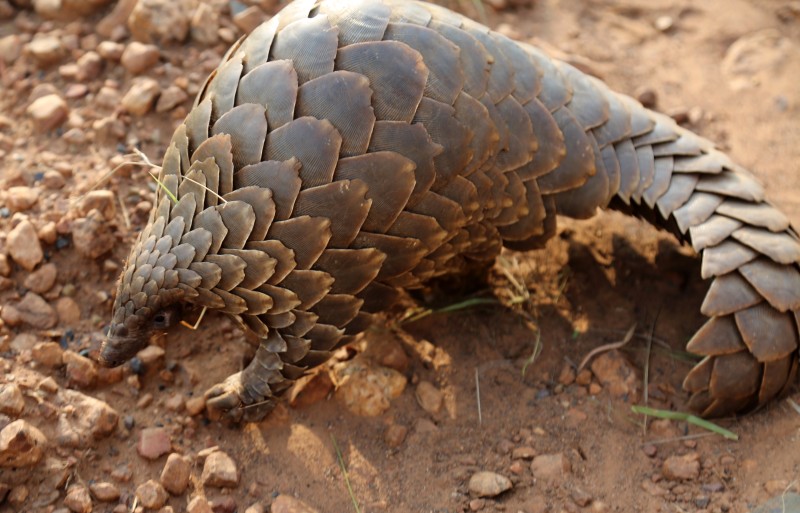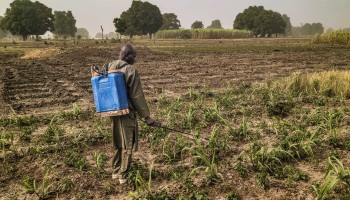Reported by
Nigeria’s recent conviction of a man for illegally selling a metric ton of pangolin scales was welcomed this week by government and NGO officials, who are hailing better protection against the trafficking of the threatened scaly anteaters.
Steven Chinonso — also known as Chukwunonso Stephen Obunadike — was convicted by the Federal High Court in Lagos court on November 7 of conspiracy, unlawful possession, and the illegal sale of pangolin scales, and sentenced to one year in prison.
The verdict “sends a clear message to the world that we do not encourage or tolerate those who participate in the illicit trade in endangered species. We understand the ecological value of making sure that these animals are protected,” Timi Bomodi, Deputy Comptroller General for Nigeria’s Customs Service (NCS) told OCCRP.
Pangolins, found across Africa and Asia, are the world's most trafficked mammals. With the four Asian species hunted to near extinction, the African Wildlife Foundation estimates that around 2.7 million pangolins are trafficked from Africa’s rainforests each year.
Because their survival is threatened, the trade in pangolins or their scales is banned under the Convention on International Trade in Endangered Species of Wild Fauna and Flora. Now, stronger law enforcement appears to be reducing the smuggling of pangolin from Nigeria, which used to be the center of its trafficking.
A joint operation by the NSC and the Wildlife Justice Commission (WJC), a nongovernmental organization, seized around 1 metric ton of pangolin scales from Chinonso. Many of the scales came from other African countries and were destined for Asia, where they are popular in traditional medicine.
The conviction of Chinonso was hailed as a “major step forward in disrupting the wildlife trafficking networks operating in West Africa” by Olivia Swaak-Goldman, Executive Director of the WJC.
“It demonstrates that traffickers who once operated with impunity in Nigeria — previously the world’s largest hub for pangolin trafficking — are now being held accountable, sending a strong signal that wildlife crime carries real consequences,” she told OCCRP. “Increasingly, the risks of engaging in wildlife trafficking in Nigeria now outweigh the potential rewards.”
She noted that Nigeria’s newly passed Endangered Species Conservation and Protection Bill will soon introduce stronger penalties for trafficking, including sentences of up to 10 years and fines of 12 million naira (approximately $8,300), further bolstering the country’s ability to combat wildlife crime.”
The case against Chinoso is part of a broader investigation by NSC and WJC into Lagos-based wildlife trading networks, which has so far resulted in 3.7 metric tons of pangolin scales seized and five arrests, with the remaining accused still before the courts.
“The conviction of this trafficker marks a major victory for biodiversity conservation in Nigeria and West Africa as a whole,” said Denis Mahonghol, the Central Africa director of wildlife trade monitoring network TRAFFIC, who estimated the one metric ton seized scales corresponded to 2,008 individual pangolins.
“It disrupts a critical link in the wildlife trafficking network, reduces immediate pressure on pangolin populations, and signals Nigerian authorities’ strong commitment to prosecuting wildlife crimes,” he told OCCRP.
But TRAFFIC’s Mahonghol and Customs officer Bomodi noted enforcement should focus more on the demand side of pangolins.
“Without demand, there won't be a supply,” Bomodi said. “So it is important that while we do our bit here in Nigeria and Africa in particular, that those of you in Europe and in Asia [...] work towards exposing the cartel that encourages the trade in this endangered species. That would really help us.”






